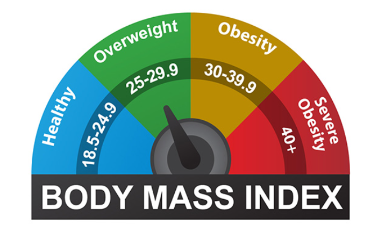The Body Mass Index (BMI), also known as the Body Mass Index (BMI), is a commonly used international measure of obesity and health.
The Body Mass Index (BMI), also known as the Body Mass Index (BMI), is a commonly used international measure of obesity and health.
The calculation formula is: BMI = weight / height squared. (Weight in kilograms; height in meters.)
BMI was first proposed by the Belgian polymath Lambert Adolphe-Jacques Quetelet in the mid-19th century.

Health Significance:
BMI is a fundamental tool for screening for obesity and related health risks. High values may increase the risk of chronic conditions such as hypertension, type 2 diabetes, and coronary heart disease; low values may indicate malnutrition, osteoporosis, or a weakened immune system. Due to the distribution of body fat in Asian populations, a BMI ≥ 23 should raise concerns about metabolic abnormalities.
Applicable Population:
BMI is applicable to adults aged 18-65. It is not applicable to pregnant women, athletes, the elderly, or those with abnormal muscle mass. Athletes with high muscle density may be misclassified as overweight, while elderly people with muscle loss may underestimate their obesity risk. A comprehensive assessment requires consideration of other indicators, including body fat percentage. Limitations:
BMI cannot distinguish between fat and muscle mass and ignores key indicators such as waist circumference and visceral fat. Even if a person has an apple-shaped body with a normal BMI, an excessive waist circumference (≥90cm for men and ≥85cm for women) is still considered abdominal obesity. Patients with metabolic syndrome require a comprehensive assessment based on blood sugar and lipid profiles.

Improvement Suggestions:
Those with an abnormal BMI can adjust their BMI through diet and exercise. Overweight individuals are advised to reduce their intake of refined carbohydrates, opt for whole grains and leafy green vegetables, and engage in 150 minutes of brisk walking or swimming weekly. Underweight individuals can increase their intake of high-quality protein such as nuts and dairy products, and combine resistance training with muscle building. Severe obesity requires medical intervention.
Maintaining a healthy BMI requires a long-term balance between energy intake and expenditure. Consume 300-500 grams of vegetables and 200-350 grams of fruit daily, and engage in 3-5 aerobic exercise sessions combined with 2 strength training sessions per week. Monitor weight regularly and avoid extreme dieting or excessive weight gain. Consult a nutritionist or endocrinologist if an abnormal BMI persists for more than three months.
